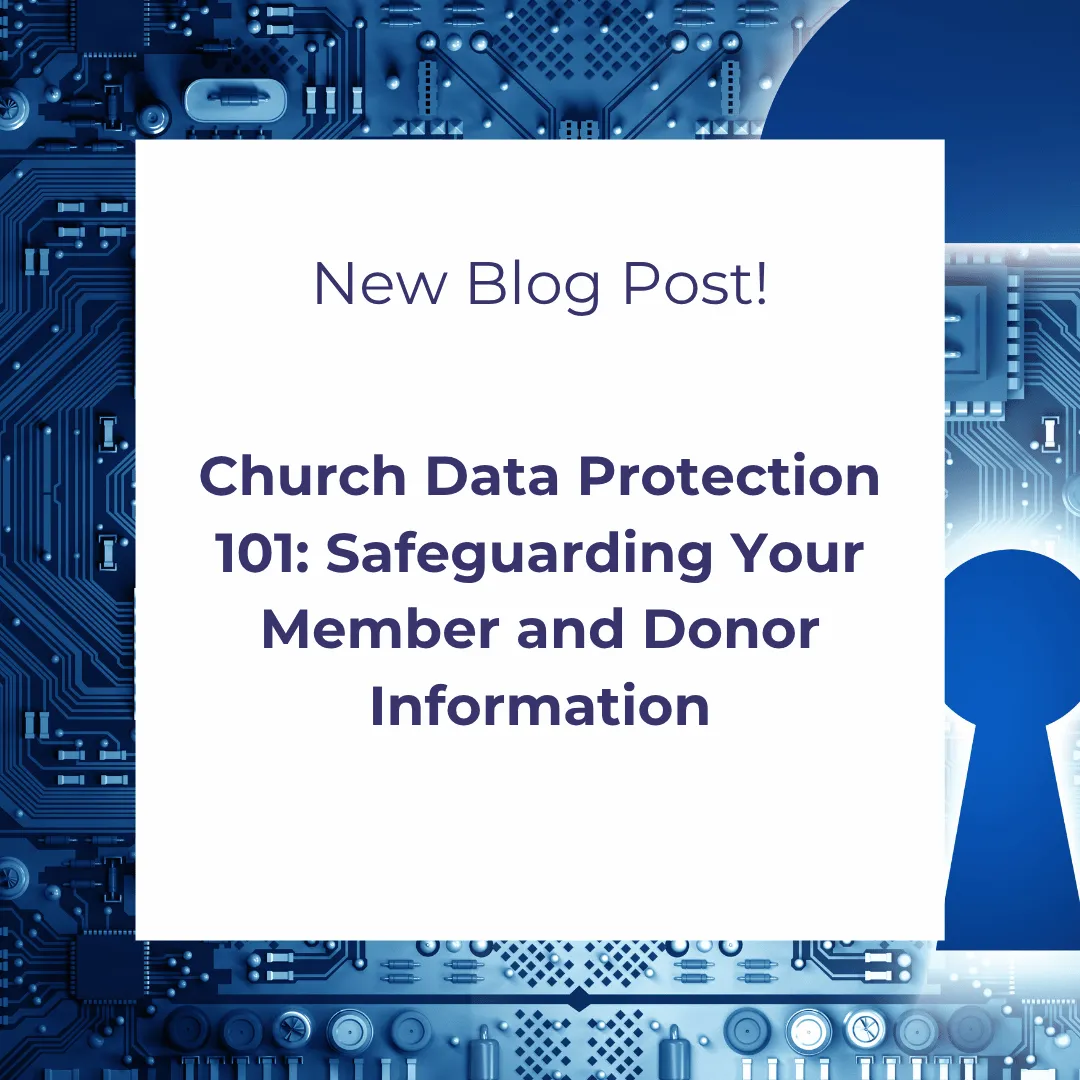
Church Data Protection 101: Safeguarding Your Member and Donor Information
“Now it is required that those who have been given a trust must prove faithful.”
-1 Corinthians 4:2 NIV
Introduction:
Your church is a safe place. It’s a community built on trust and faith. As church leaders, you are entrusted with many things, including the care of your people. In our digital world, that care now includes protecting their personal information.
Data protection may sound like a technical term for big businesses, but for a church, it’s simply an act of stewardship. It’s about being faithful with the sensitive information your members and donors have entrusted to you.

With that said, let's discuss how to protect your member's privacy! 👊
The Precious Data Your Church Holds
You might be surprised by how much sensitive information your church manages every day. This isn’t just a list of names. It often includes:
Personal Details: Names, addresses, phone numbers, and birth dates for entire families.
Giving History: Detailed records of tithes and offerings, which show a family’s financial situation.
Pastoral Notes: Private and confidential notes from counseling sessions or hospital visits.
Children’s Information: Names, allergies, and contact information for parents in your children’s ministry.
This information is a sacred trust. If it were lost or stolen, it could cause real harm and break the trust your community has placed in you.
The Ethical Duty to Protect
Protecting this data is more than just a good idea; it’s an ethical responsibility. When people share their lives and resources with the church, they trust you to keep that information safe.
Being a good steward means guarding everything God has entrusted to your care, and that includes the digital well-being of your flock. A data breach isn’t just a computer problem—it’s a ministry problem that can damage your church’s reputation.
Simple Ways to Be a Good Steward
Protecting your data doesn’t have to be complicated. It comes down to a few core principles that a service can help you manage easily.
1. Keep Information Secret with Encryption Encryption is like putting your data into a locked box that only you have the key to. It scrambles your information so that even if a criminal gets ahold of it, they can’t read it. This is vital for protecting financial records and sensitive pastoral notes.
2. Create a Safety Net with Backups What would happen if a computer crashed or was stolen? A secure backup is a safe copy of all your data stored in a different location. If anything happens, you can restore your information quickly without losing years of records. This is your best defense against disasters and ransomware.
3. Close the Doors with Automated Updates Software programs, like Windows, can have small security holes that hackers look for. Companies release updates, or patches, to fix these holes. An automated update service works quietly in the background to make sure these patches are always installed, keeping those digital doors locked tight.
Protection Made Simple
You and your team are called to ministry, not to be cybersecurity experts. At Systems Shepherd, we believe protecting your church’s data should be simple and affordable.
Our service bundles all these core protections—encryption, secure backups, and automated updates—into one package. We handle the technical details so you can focus on your ministry with the peace of mind that you are being a faithful steward of the information entrusted to you.
Click here to learn how Systems Shepherd can protect your church's computer!
